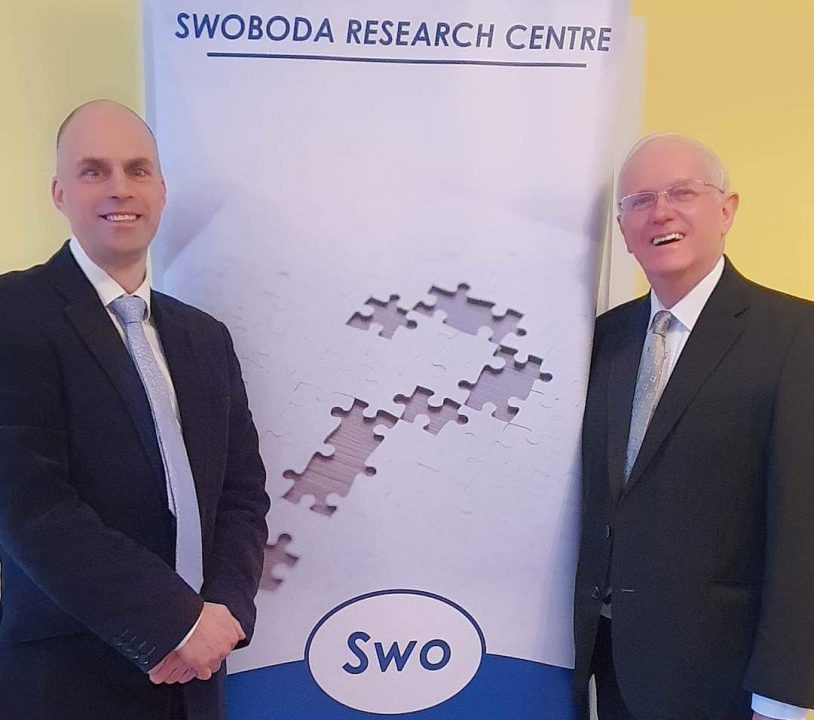The World Council of Credit Unions (Woccu) held its annual conference in Glasgow in July, which spawned a new collaboration between Swoboda, the British and Irish credit union research centre, and the Caribbean Confederation of Credit Unions (CCCU).
If you are from the Caribbean or have visited one of the many beautiful islands, you will probably be aware that credit unions are well established in the region. The CCCU, based in St Kitts and Nevis, serves 22 national affiliate organisations, representing 230 credit unions throughout the Caribbean. Representatives of these credit unions attended the Glasgow conference; among them was Denise Garfield, the general manager of CCCU.
At the conference, Dr Paul A Jones, director of research at Swoboda, delivered a workshop on the hot, contested issues in credit union governance – dealing with questions that are replicated in boardrooms around the world. Woccu invited him to make the presentation because of his extensive background of research into co-operative governance, reflected in Swoboda’s 2017 publication, Credit Union Strategic Governance, based on engagement with credit unions in Britain, Ireland, and Romania.
Related: Swoboda Research Conference looks at credit unions on the recession frontline
Paul told delegates that boards everywhere must bring clarity to the roles and authority of directors, chairs, and CEOs; establish a positive relationship between the chair and the CEO; and embed board development and education. Their job is to control the credit union and at the same time ensure that it serves its members effectively.
More than 400 delegates attended the workshop, including Denise and many other Caribbean representatives. It provoked a lively debate, with stories shared from credit unions all over the world, concerning the challenges and difficulties in implementing effective governance.

The workshop was especially interesting to Denise and the other Caribbean participants. They recognised that the key governance issues identified by Paul chimed well with CCCU’s own concerns back home. At its annual convention in Jamaica the previous month, CCCU discussed the survival, sustainability, and viability of the sector – and identified that strengthening governance had to be a key element of its development strategy. Following the workshop, Denise approached Swoboda to see if it could provide governance support for Caribbean credit unions.
Several weeks and online meetings later, Paul and his fellow Swoboda director Nick Money had committed to deliver a programme of ‘train the trainer’ workshops, to enable Caribbean credit unions to adopt a consistent model of best practice for co-operative governance. The system presented by Nick and Paul, and as originally articulated in the 2017 report, is bespoke for the credit union movement, bringing together the diverse elements of governance into a dynamic, integrated, and coherent system, based on a clear set of universal co-operative principles which can be implemented by all credit unions internationally, and has been tried, tested, and published in Romania as well as Britain. The model describes the roles and responsibilities, relationships and behaviours that ensure that a credit union can operate as a sound and well-run business and achieve its goals and strategic objectives.

“It was imperative”, says Denise, “for us at CCCU to engage the Swoboda Research Centre to conduct a series of workshops to train credit union boards of directors in the field of effective corporate governance. This partnership presents an exciting opportunity for collaboration as we encourage and maintain the precedence for good governance within the region.”
Swoboda’s training programme will run over 12 sessions in January, February and March. Unluckily for Paul, they will be held online. “Perhaps the only disappointment is that we can’t meet face to face,” he said. “A winter in the Caribbean would be attractive.”
The training will cover all aspects of board and senior manager-level governance, including the principles of governance, the importance of understanding the respective roles of the board, directors and executives, and the importance of setting goals and strategy, as well as risk oversight and compliance.
Further critical features address the commitment to co-operative values and an emphasis on sustaining the credit union’s democracy and accountability to members.
The programme has another attraction for Swoboda, says Nick Money. “We have started a big project to overhaul our 2017 report. We want to update it to reflect developments in practice in recent years, make it much more user-friendly and create versions that reflect local regulation and approaches in Ireland, the Caribbean and other jurisdictions.
“Our experience in Britain, with CCCU and UNCAR, the Romanian credit union trade association, shows us that despite the diversity of the international credit unions and their regulatory and other contexts, the practice of good governance has so much in common and we want to share our experience.”
Swoboda will engage a range of experts to review the approach, section by section, and aims to publish a new version of the governance publication in late 2023.
Swoboda is delighted to be offered the opportunity to work with CCCU and its member credit unions. As Paul notes, “It presents a great opportunity not only to share our thinking and expertise in governance, but to learn from the experience of credit unions facing similar governance issues in another part of the world”.
There is something special about working with Caribbean credit unions, because it was from the Caribbean that the idea of credit union was originally introduced into Britain in the 1960s. The first credit unions in Britain were in London established by people who had migrated from the Caribbean.
“Swoboda is proud to be involved in working with a credit union movement that was the original inspiration for credit unions this side of the Atlantic Ocean,” said Nick.
To learn more about credit unions in the Caribbean, contact Denise Garfield [email protected] or visit caribccu.coop. For more information on Swoboda and its research activity in Ireland and Britain, contact Nick Money [email protected] or visit swobodacentre.org

